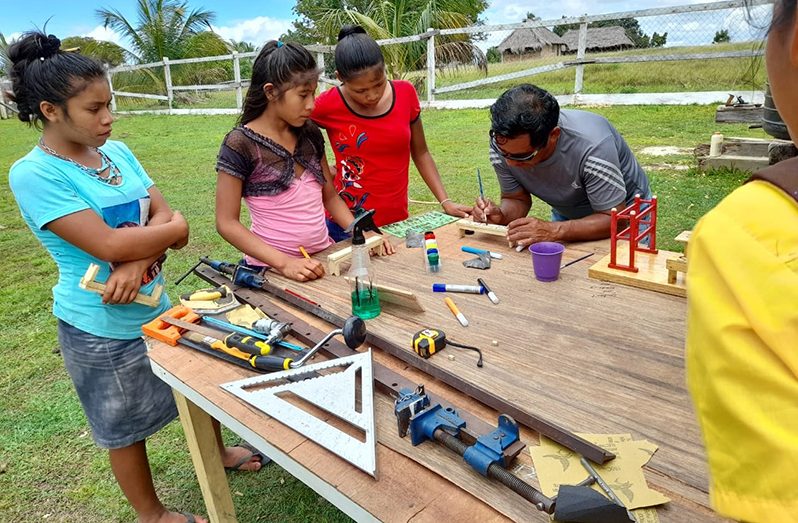Rupununi youth get access to culture-based classes
TRADITIONAL knowledge classes in eight villages across the Rupununi are progressing well and have managed to grip the attention of youths whom organisers say may have previously seemed uninterested but who now appears to have simply been too shy to ask for an opportunity to learn.
The purpose of these classes, organised by the South Rupununi Conservation Society (SRCS), is to spark an interest in youths and get them to be involved in their culture, installing a sense of pride and empowerment.
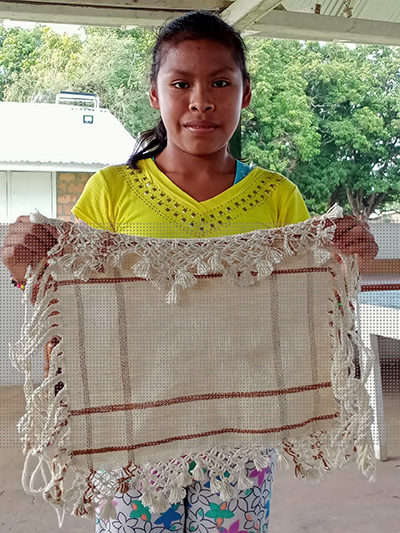
“Any elder in a village will tell you that most young people are losing interest in their heritage and are more concerned with technology, money, and so forth. But from these classes we are seeing that children really do want to learn and it seems like they have just not had the opportunity,” Programme Coordinator Neal Miller told Pepperpot Magazine.
“And in some cases, parents didn’t think their children wanted to learn but really the children were just shy to ask. The children are thoroughly enjoying themselves and we have lots of children who want to join the classes in their village but we are limited to 30 in one village due to COVID guidelines,” Miller further explained.
Glad to be supported with funding from the Sustainable Wildlife Management – Programme Guyana (SWM), the members of SRCS have placed Environmental Education at the top of their priorities list since founding the organisation in 2002. They believe that many of the destructive habits that occur in the South Rupununi such as overharvesting, pollution, habitat destruction and more, could be addressed by such education.
Meanwhile, SWM is an African, Caribbean and Pacific (ACP) Group of States initiative, which aims to tackle the issue of overhunting of wild meat
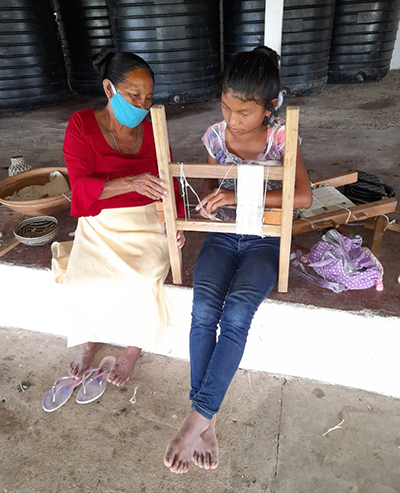
Last January, the group started up the traditional knowledge classes following a visit to eight communities in Central and South Rupununi to speak with Village Councils about how best the children could’ve benefited from the courses. The lessons are being done at the discretion of the Village Councils and all COVID-19 protocols are observed.
The villages are Kumu, Shulinab, Sand Creek, Katoonarib, Sawariwau, Aishalton, Maruranau and Shea.
After the consultations, it was decided that each village would select three skills that they wanted their youth to learn and then identify three persons in the village who would teach these skills. Miller and another SRCS member, Alyssa Melville, then held eight separate workshops in the communities and helped the resource persons to design the lesson plans, set schedules, decide on the students for the classes and collate lists of materials that they would need.
The skills selected were cotton spinning, basket weaving, arrow making, cow skin crafts, Wapichan language, Macushi language, storytelling, leather marking, traditional medicine and woodwork.
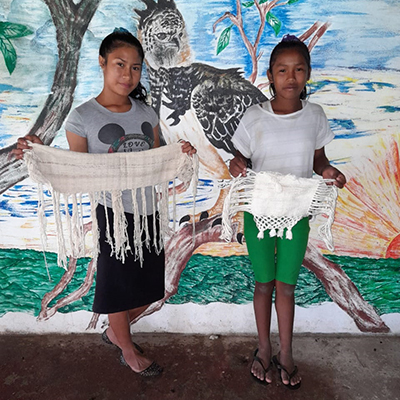
Each village selected 30 students for their lessons, totalling 240 students across the eight villages. The 30 students were split into groups of 10 and for the first six weeks, each group attends one class per week where they learn one skill and by the end of the six lessons, they make small crafts like a baby-sized hammock or sling, an arrow, or basket.
After six weeks, the groups rotate to the next skill and the teacher teaches the same six lessons to the new group. Once the groups complete all three skills (18 classes), SRCS is hoping to hold an exhibition class in each village where the students can showcase what they have learnt to the rest of the village. This will however depend on COVID-19 restrictions. The lessons are currently scheduled to run until June 2021.
Beyond June
The SRCS is hoping to be able to secure additional funding for the classes to be continued beyond June 2021. “We have received overwhelmingly positive feedback about the classes. Due to funding, we were only able to implement the project in eight villages. However many other villages have approached us asking to start the project in their village,” Miller noted.
Persons seeing what are being produced as a result of the classes, online and otherwise, have been expressing an interest in purchasing the items, so the SRCS has been working on ways to make this happen.
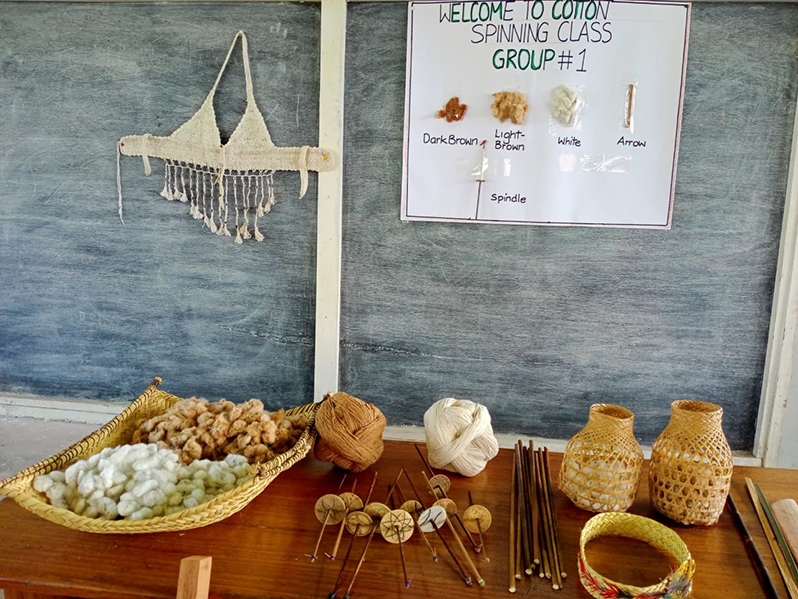
The SRCS may possibly be able to add some business classes to the project so that the students can learn the basics of how to sell their crafts if they want to and is inclined to work with local businesses to create a market that the children and resource persons can sell to.
“I think there is a significant demand for these crafts; it is just a case of connecting them to a market and to equip them with the skills to create and properly manage their own small business. Of course it is not possible for very young children to do this by themselves, but one of our ideas is that each community could set up their own craft group that would share in the profit and anyone could join and contribute,” Miller offered.



.jpg)






